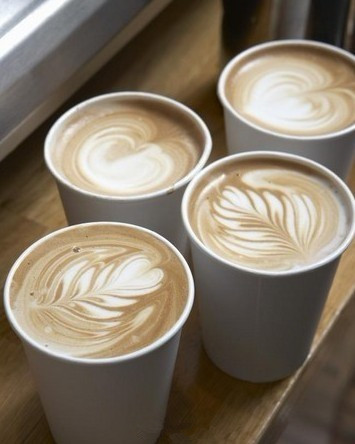The meaning of espresso basic knowledge of high-quality coffee

In Italy, espresso has at least two meanings: one is fast; the other is somewhat ancient, probably dating back to the age of enlightenment, specifically something specially prepared for you, a custom that pleases people. Caffe Espresso is a cup of coffee made especially and quickly for you.
Espresso making is a delicate technique that is widely misunderstood outside Italy, and the Italians don't explain it. The correct use of espresso machines and grinders represents the culmination of four centuries of human exploration into extracting flavor components from roasted coffee.
One reason for the lack of standards in espresso making is that the technology is so new. Coffee is comparable in complexity to alcohol, but the tradition and practice of alcohol has been around for thousands of years.
Espresso tradition, by contrast, is like baby food. In early designs, Italian coffee machines used steam to generate pressure. Direct use of steam pressure means that the temperature of the water used to make the coffee is too high, destroying most of the aromatic oils in the coffee, and occasionally, the coffee machine will explode. Espresso really hit the world stage in 1947, when the Italian company Gaggia used spring-loaded pistons to produce hot water under pressure to make coffee.
Espresso is the culmination of all coffee-making methods. It extracts the most flavor from the coffee, leaving behind excess acids, caffeine, etc., which are done under pressure. But outside Italy, there was never a standard to examine this approach. The whole world knows to buy these wonderful machines without knowing their potential. Espresso tastes just as good as ground coffee smells, or better, if made with great care. The best condition is a honey-like consistency combined with unusual aromas and textures. But this quest is difficult to master.
Like the troubadours sing, elegant people travel the world in search of their true love, the purest and most delicate rarities in the world. Well then, let's add one to that list. You search the world for a good espresso. Maybe you're old when you find it, maybe this cup of coffee is your swan song, but you've been blessed with luck, and you're the happiest person in the world.
Important Notice :
前街咖啡 FrontStreet Coffee has moved to new addredd:
FrontStreet Coffee Address: 315,Donghua East Road,GuangZhou
Tel:020 38364473
- Prev

Basic knowledge of Espresso factors affecting the quality of espresso
On the basis of affecting the quality of coffee, we divide the production process into several elements to facilitate the organization of a large number of materials, not to say that these elements are independent of each other or can be defined separately. For example, there are many small factors that affect the pump pressure, and we just assume that they are all normal, that the valves in the machine are well sealed, and that the outlet head seal ring is soft and tough, ensuring good condition.
- Next

Espresso making is akin to a musical art
Espresso is a science, but science can't tell you what coffee tastes like. We often say that espresso making is an art akin to music. In a perfect cup of Espresso Ristretto, a lot of aroma and coffee texture blend together. The finest aroma components are locked in coffee aroma oil for just a moment,
Related
- Beginners will see the "Coffee pull flower" guide!
- What is the difference between ice blog purified milk and ordinary milk coffee?
- Why is the Philippines the largest producer of crops in Liberia?
- For coffee extraction, should the fine powder be retained?
- How does extracted espresso fill pressed powder? How much strength does it take to press the powder?
- How to make jasmine cold extract coffee? Is the jasmine + latte good?
- Will this little toy really make the coffee taste better? How does Lily Drip affect coffee extraction?
- Will the action of slapping the filter cup also affect coffee extraction?
- What's the difference between powder-to-water ratio and powder-to-liquid ratio?
- What is the Ethiopian local species? What does it have to do with Heirloom native species?

